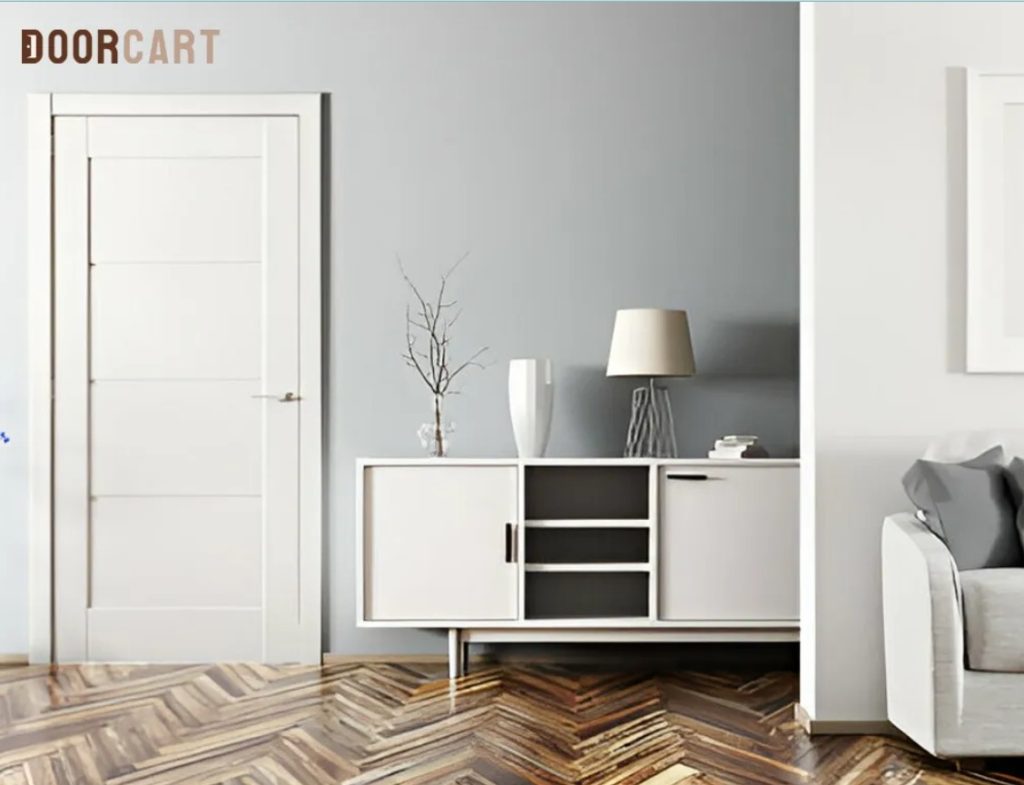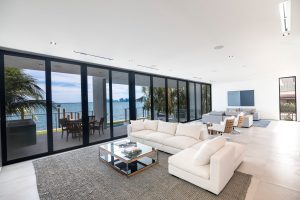When choosing interior doors for your home, two popular options stand out: solid core interior doors and frosted glass doors. Both offer unique benefits in terms of aesthetics, functionality, and durability.
In this comprehensive guide, we’ll explore the pros and cons of each, their best applications, and how to decide which one suits your needs.
1. Understanding Solid Core Interior Doors
Solid core interior doors are constructed with a dense, sturdy core—typically made of wood composite, particleboard, or fiberglass—covered with a veneer or laminate finish. Unlike hollow-core doors, they offer superior soundproofing, durability, and insulation.
Advantages of Solid Core Doors
✅ Enhanced Soundproofing – Ideal for bedrooms, home offices, and media rooms where noise reduction is important.
✅ Durability & Strength – Resists dents and scratches better than hollow-core doors.
✅ Better Insulation – Helps maintain room temperature and blocks drafts.
✅ Fire Resistance – Some solid core doors have fire-rated options for added safety.
✅ Premium Feel – Adds a high-end, substantial look to your interiors.
Disadvantages of Solid Core Doors
❌ Heavier Weight – Requires sturdy hinges and proper installation.
❌ Higher Cost – More expensive than hollow-core doors.
❌ Limited Design Options – Fewer decorative styles compared to glass doors.
Best Uses for Solid Core Doors
- Bedrooms – For privacy and noise reduction.
- Home Offices – To minimize distractions.
- Bathrooms – For added insulation and moisture resistance (if properly sealed).
- Entryways – Provides a solid, secure feel.
2. Exploring Frosted Glass Doors
Frosted glass doors feature glass panels that are either etched, sandblasted, or laminated to create a semi-opaque appearance. They allow light to pass through while maintaining privacy.
Advantages of Frosted Glass Doors
✅ Natural Light Flow – Brightens up dark hallways and rooms.
✅ Modern Aesthetic – Sleek and contemporary, perfect for minimalist designs.
✅ Privacy Without Darkness – Obscures visibility while still letting light in.
✅ Versatile Designs – Available in various patterns and opacity levels.
✅ Space Illusion – Makes small areas feel more open.
Disadvantages of Frosted Glass Doors
❌ Less Soundproofing – Not ideal for rooms requiring complete noise isolation.
❌ Fragility – Glass can crack or shatter upon impact.
❌ Higher Maintenance – Shows fingerprints and smudges more easily.
❌ Limited Insulation – Not as energy-efficient as solid doors.
Best Uses for Frosted Glass Doors
- Bathrooms – Balances privacy and light.
- Closet Doors – Adds elegance while keeping contents semi-hidden.
- Office Partitions – Creates an open yet defined workspace.
- Modern Living Spaces – Enhances contemporary and Scandinavian interiors.
3. Key Differences Between Solid Core and Frosted Glass Doors
| Feature | Solid Core Doors | Frosted Glass Doors |
|---|---|---|
| Privacy | High | Moderate (depends on opacity) |
| Soundproofing | Excellent | Minimal |
| Durability | Very durable | Fragile (risk of breakage) |
| Light Transmission | Blocks light | Allows light diffusion |
| Aesthetic | Traditional, solid | Modern, sleek |
| Cost | Mid to high range | Varies (custom glass can be expensive) |
| Maintenance | Low (easy to clean) | Moderate (glass requires frequent cleaning) |
4. How to Choose the Right Door for Your Home
Consider the Room’s Function
- Need privacy & quiet? → Solid core door (bedrooms, offices).
- Want light & style? → Frosted glass door (bathrooms, closets).
Match Your Interior Design
- Traditional or rustic homes → Solid wood or painted solid core doors.
- Modern or industrial spaces → Frosted glass with metal frames.
Budget & Installation
- Solid core doors are heavier and may need professional installation.
- Frosted glass doors can be more expensive if custom-designed.
Climate & Insulation Needs
- Solid core doors are better for insulation in colder climates.
- Frosted glass works well in mild, well-lit environments.
5. Combining Both Styles for a Balanced Look
Can’t decide? Many homeowners mix both styles for a functional yet stylish interior:
- Use solid core doors for bedrooms and private spaces.
- Install frosted glass doors in bathrooms, kitchens, or as room dividers.
- Consider hybrid designs (e.g., solid doors with small frosted glass inserts).
6. Final Thoughts
Both solid core interior doors and frosted glass doors have their unique strengths. Your choice depends on:
✔ Privacy needs
✔ Desired light flow
✔ Aesthetic preferences
✔ Budget considerations
If you prioritize soundproofing and durability, go for solid core doors. If you love natural light and modern design, frosted glass is a great choice.
For the best of both worlds, consider a mix of both styles throughout your home!
Need Help Choosing?
Consult with an interior designer or door specialist to find the perfect fit for your space. Whether you prefer the sturdiness of solid core or the elegance of frosted glass, the right door can enhance both functionality and style in your home.







